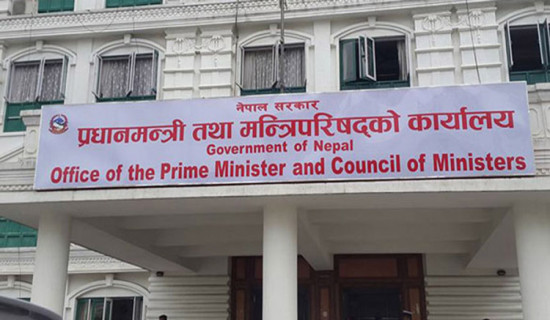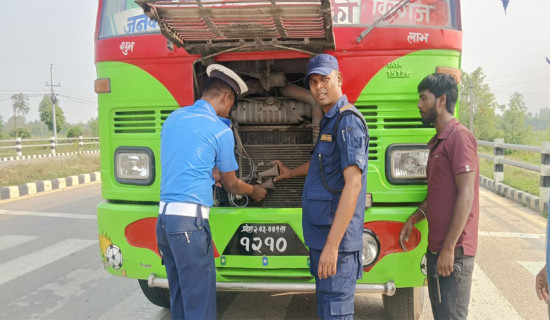- Sunday, 19 May 2024
Right To Information
As Nepal ushered in multiparty system in early 1990s, it began to experiment various democratic tools aimed at enhancing the people’s participation in decision-making process and easy access to the services and goods provided by the government. Right to Information (RTI) is one such instrument that primarily seeks to ensure transparency and accountability of the government activities. People have the right to know what the elected representatives and civil servants are doing or what decisions they are making. This is because their decisions and actions have direct implications in the life of ordinary people. If the citizens are informed about the activities of public officials, this will basically bear two advantages. First, public awareness impels the authorities to improve their performance and refrain themselves from being involved in any act of irregularities. Second, if the citizens are acquainted with the affairs of the state, their trust in public offices will increase. In this way, good governance can be realised.
Therefore, RTI is a viable means to empower citizens and ensure efficient delivery of services to the public. This is a reason why the constitution has recognised it as a fundamental right of the people. Right to Information Act, 2064 BS defines RTI as 'the right to ask for and obtain information of public importance held in the Public Bodies'. As per this, the people have the right to study or scrutinise any written document and materials held in offices or proceedings of such authorities. In line with the constitution's provision, successive governments have introduced laws and mechanisms to enforce the RTI. In 2008, the National Information Commission (NIC) was set up as an independent body with a view to implementing, promoting and practicing the RTI in the country. Similarly, the public offices under three tiers of the government have designated information officers to furnish information to its seekers.
'Hello Sarkar', the hotline, run by the Office of the Prime Minister and Council of Ministers also helps the people to acquire information about the activities and decisions of concerned government agencies. The hotline also brings forth the people's complaints about the delays in the implementation of development projects and anomalies in the public offices. In a democratic set-up, it is people's natural right to be informed about the allocation and utilisaiton of public funds. So is the responsibility of the state agencies to share information with the people whenever they want to know about it. On the occasion of the 17th anniversary of the National Information Commission Saturday, emphasis was given to effectively implement the RTI-related laws. Speaking at a function organised at his office, President Ramchandra Paudel said that RTI holds significance in ensuring the meaningful citizens' participation in fostering democracy, good governance and overall progress.
Minister for Communication and Information Technology Rekha Sharma has rightly said that seeking information was not pestering public employees but making public service transparent. Despite favourable legal provisions, there are various challenges to implement the RTI. Inadequate financial and human resources have precluded the enforcement bodies, activists and public officials from embracing the evolving information dynamics. Focus needs to be given to make people aware of RTI. The concerned offices should shun the culture of secrecy and be cooperative towards the information seekers. At the same time, it is also necessary to balance transparency with protecting sensitive and highly confidential information.

















